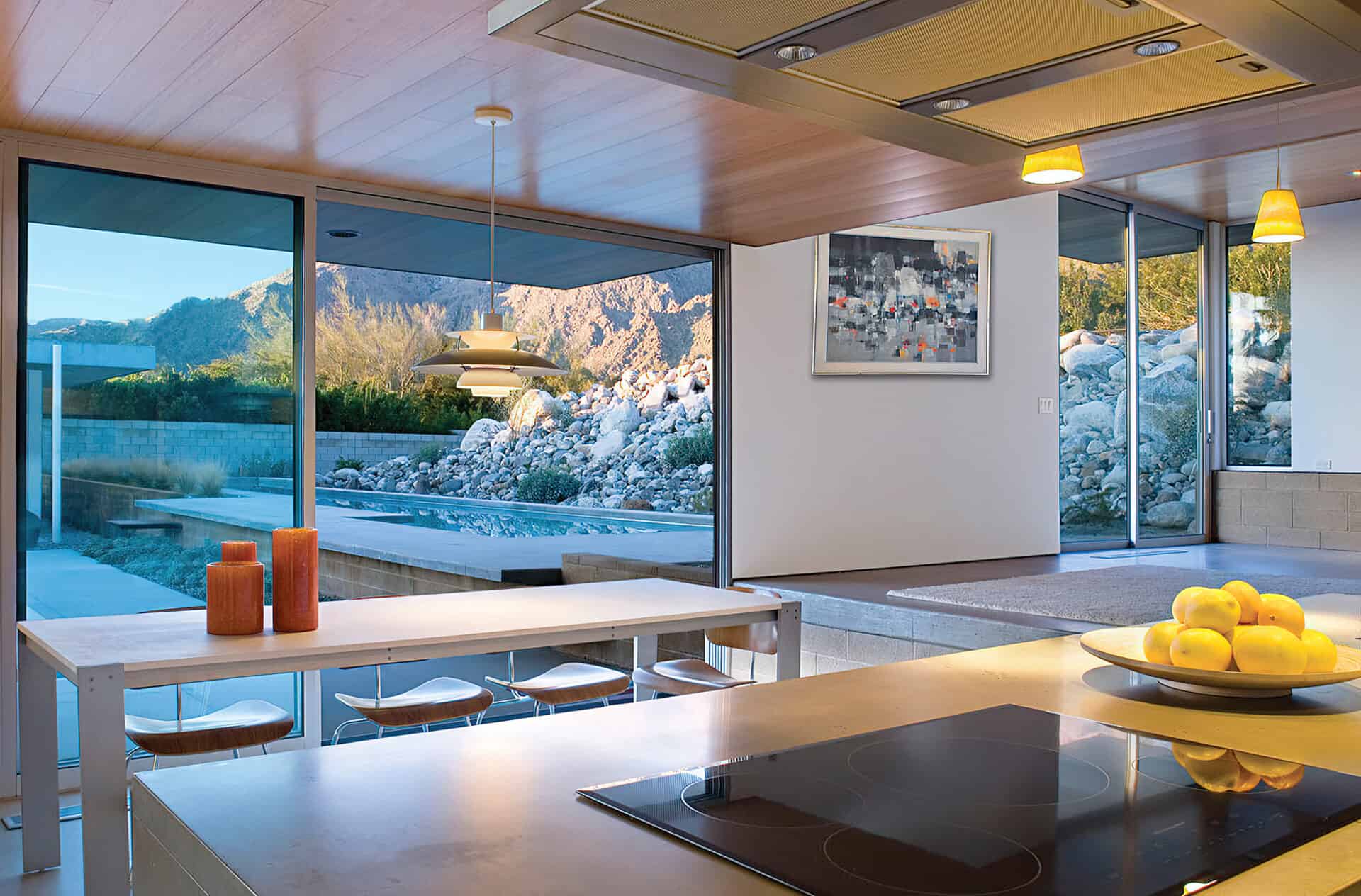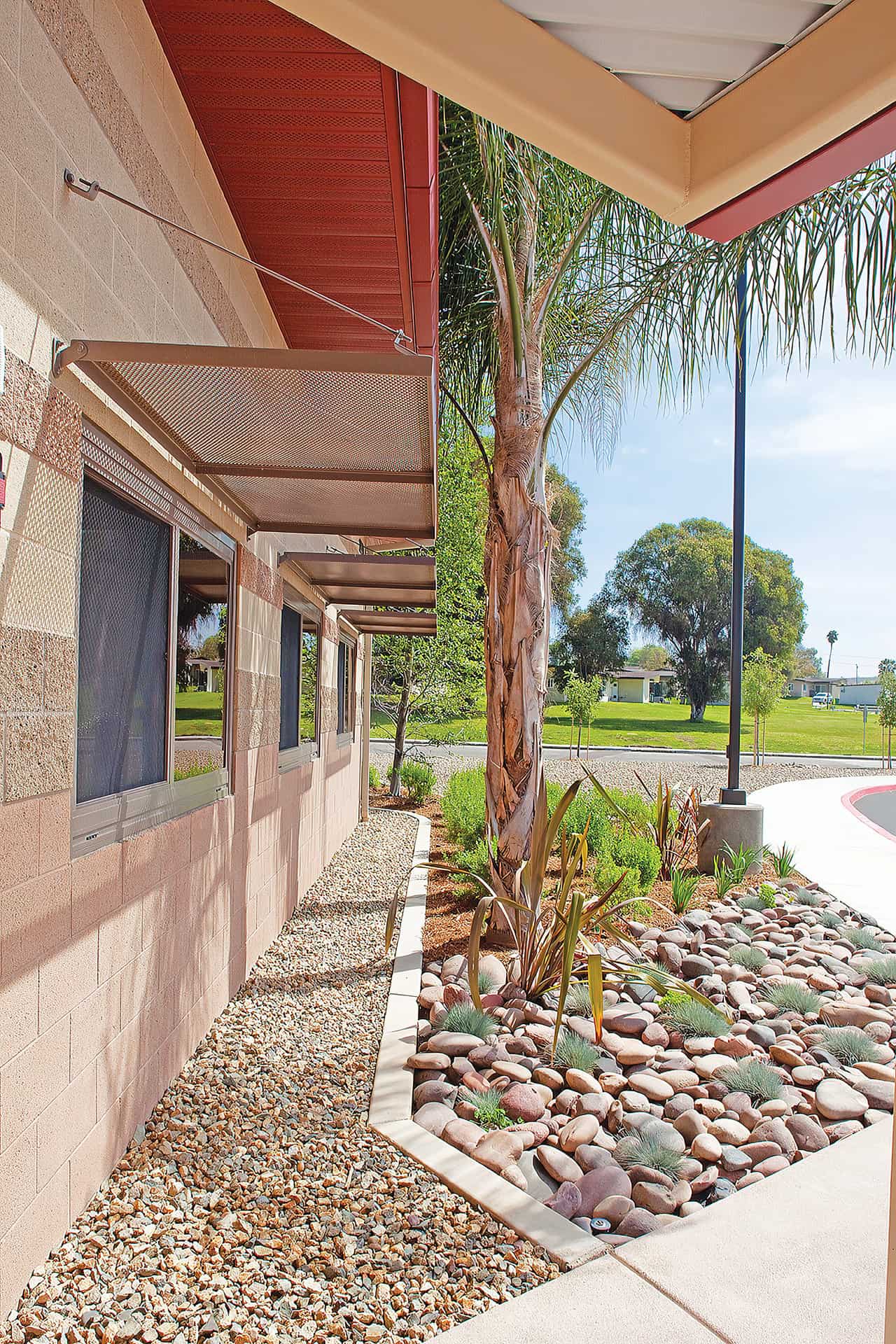Is Affordable versus other materials.

O’Donnell Residence, Palm SPrings, CA
Architect: o2 Architecture
Why Masonry is Affordable vs. Other Materials
Concrete Masonry stacks up against wood and steel construction

When compared to wood framing, concrete masonry is more cost-effective. It yields a more secure, much more sturdy building that is cheaper to insure and build. Due to its durability and energy efficiency, concrete has the potential to cost less over time to operate and maintain. While wood construction is often cheaper than concrete, wood deteriorates faster and requires higher maintenance and repair costs.
Masonry has been a trusted construction material for centuries and is still the preferred choice for many residential and commercial projects. It’s strong, durable and versatile, making it ideal for all types of structures. But the best part of masonry is its affordability compared to other building materials.
Not only does masonry require fewer materials and resources to construct than other materials, but it also offers great value over time – that means great resale value, as well.
Concrete masonry blocks are cost-effective in terms of their initial cost as well as their long-term maintenance costs. The excellent thermal insulation properties mean a reduction in energy costs over time. The savings add up fast.
Design with Cost in Mind
Masonry is easy to work with and can be used in both interior and exterior settings. Here are some ways you can benefit from masonry’s affordability:
- Masonry is durable, making it ideal for long-term projects or areas exposed to heavy wear and tear.
- Masonry is one of the most affordable materials available today thanks to its ease of use, versatility, and cost-effectiveness over time.
- With its excellent insulation properties, masonry helps reduce energy costs by keeping homes cooler in summer and warmer in winter.
- Due to their low cost, low maintenance needs, and long-lasting performance, concrete masonry materials are often chosen over traditional bricks and stones as the building material of choice. This makes concrete masonry an excellent option for those looking to maximize their remodeling or construction budget while still achieving quality results.
Less Shipping, Less Labor
The benefits go beyond just the cost of the material itself. Because concrete blocks are often available locally, there’s no need to ship them from long distances, saving money on transportation fees.
This means that you can complete your project with a smaller crew, potentially reducing labor costs as well. The blocks are designed to fit together with little effort, so assembly times aren’t long or complex. Plus, since concrete is an affordable material in general, you can save money on products for your entire building envelope.
Affordable Inside and Out
Masonry provides superior insulation benefits, helping to reduce the cost of energy bills over time. The thermal mass of concrete masonry walls insulate against outside temperatures better than metal walls to help maintain constant temperatures inside while reducing your heating and cooling costs. Because of their mass, concrete masonry buildings often require much lower insulation levels.
Masonry walls also absorb sound waves, making them great for protecting against both inside and outside noise. When sound hits a masonry wall, the wall does not vibrate (because of it its rigidity). Sound waves are reflected off the wall and back toward the source. Concrete masonry is an ideal noise control material for both properties: it can act as a barrier by diffusing incident noise over a wide range of frequencies, and it can be an effective sound absorption material for absorbing noise generated within a room. This can be a huge cost-saver when compared to other materials that need added insulation for sound dampening or acoustic noise control.
Child Development Center, Marine Corps Base Camp Pendleton, CA
Architect: Cass | Sowatsky | Chapman + Associates
Masonry Contractor: Frazier Masonry Corporation